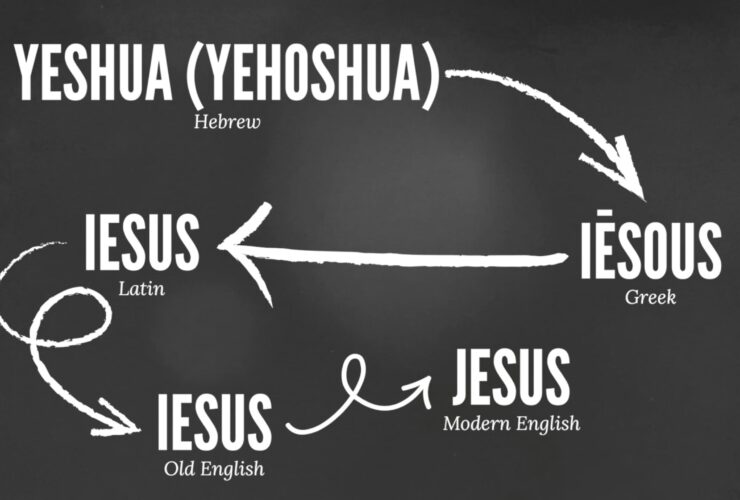There are several appearances of “the angel of the LORD” in the Old Testament. Sometimes these are just angels in human form, but at other times it is clearly the LORD himself in human form. When God physically manifests Himself, it is called a theophany. This term is composed of two Greek words meaning God and appearance. One of the purposes of theophanies in the Old Testament is to “anticipate and foreshadow the permanent coming of God into creation in the incarnation of the Son.”[1] Hence, many Christian scholars identify these physical appearances of God in human form as “the preexistent Messiah” (see Isaiah 9)—the pre-incarnation of Jesus Christ.
Interestingly, in the Old Testament book of Judges the angel of the LORD appears several times (e.g., Judges 2:1, 5:23, 6:11,12,20-22; 13:3,13,15,16,18,20,21). The question is, are these appearances merely angelic beings or are they theophanies?
Judges 2
The first appearance of the angel of the LORD is in Judges 2:1-3 in which He says to Israel: “’I led you up from Egypt and brought you to the land of which I swore to your fathers; and I said, ‘I will never break My covenant with you. And you shall make no covenant with the inhabitants of this land; you shall tear down their altars.’ But you have not obeyed My voice. Why have you done this? Therefore I also said, ‘I will not drive them out before you; but they shall be thorns in your side, and their gods shall be a snare to you.’” The first thing to note is the language the “angel” uses. He speaks in the first person and takes credit for saving Israel—only a claim that God could make. Clearly, he’s not speaking for God but as God. Thus, here we have a theophany. Not only that, but the New Testament book of Jude is “quite explicit about the identity of the One who delivered God’s people from slavery in the Old Testament.” He says, “But I want to remind you, though you once knew this, that the Lord [Jesus]…saved the people out of the land of Egypt, [and] afterward destroyed those who did not believe.”[2] In 1 Corinthians 10:4 the Apostle Paul also Identifies Jesus Christ as the one who led the Israelites through the wilderness for 40 years. Thus, not only is this a theophany but a Christophany!
Judges 6
Then, a few chapters later, in Judges 6 the angel of the LORD appears again—this time to Gideon—in a scene very reminiscent of Abraham’s encounter with the God-Man in Genesis 18. For example, in both Genesis 18 and Judges 6 the LORD or angel of the LORD comes and sits under a tree. And as with Judges 2, the language the angel uses strongly suggests that this is God (and Christ) Himself. Beginning in verse 12 it says, “And the Angel of the LORD appeared to him, and said to him, “The LORD is with you, you mighty man of valor!” 13 Gideon said to Him, “O my lord, if the LORD is with us, why then has all this happened to us? And where are all His miracles which our fathers told us about, saying, ‘Did not the LORD bring us up from Egypt?’ But now the LORD has forsaken us and delivered us into the hands of the Midianites.” 14 Then the LORD turned to him and said, “Go in this might of yours, and you shall save Israel from the hand of the Midianites. Have I not sent you?” 15 So he said to Him, “O my Lord, how can I save Israel? Indeed my clan is the weakest in Manasseh, and I am the least in my father’s house.” 16 And the LORD said to him, “Surely I will be with you, and you shall defeat the Midianites as one man.” (Judges 6:12-16)
The first major clue that this angel of the LORD is God Himself comes in verses 14 and 16 when the author of Judges refers to the angel as the LORD Himself (or YHWH in Hebrew). Also, in these same verses, the angel identifies Himself with God saying, “I will be with you” Gideon “Have I not sent you?” But if we’re like Gideon, we might need a little bit more convincing! So let’s keep reading.
In verse 17 Gideon says to the angel, “If now I have found favor in Your sight, then show me a sign that it is You [LORD] who talk with me.” The angel then commands Gideon to prepare meat and unleavened bread and lay them on a rock (which he does). “21 Then the Angel of the LORD put out the end of the staff that was in His hand, and touched the meat and the unleavened bread; and fire rose out of the rock and consumed the meat and the unleavened bread. And the Angel of the LORD departed [or vanished] out of his sight.” This was enough to convince Gideon because verse 22 says, “Now Gideon perceived that He was the Angel of the LORD. So Gideon said, “Alas, O LORD God! For I have seen the Angel of the LORD face to face.” 23 Then the LORD said to him, “Peace be with you; do not fear, you shall not die.”” (Judges 6:17, 20-23) It is evident from Gideon’s fear that the angel of the LORD was God Himself. For no one could see the face of God and live—at least not in His full glory.
Judges 13
The angel of the LORD also makes an appearance in Judges 13 to announce the birth of Samson to his mother and eventually to his father Manoah. Like Gideon in Judges 6, Manoah and his wife also offer up a sacrifice to the LORD on a rock. And they too, witness a miracle. As verses 19-23 record, “So Manoah took the young goat with the grain offering, and offered it upon the rock to the LORD. And He [the angel] did a wondrous thing while Manoah and his wife looked on— 20 it happened as the flame went up toward heaven from the altar—the Angel of the LORD ascended in the flame of the altar! When Manoah and his wife saw this, they fell on their faces to the ground. 21 When the Angel of the LORD appeared no more to Manoah and his wife, then Manoah knew that He was the Angel of the LORD.”
As with Gideon, Manoah’s response to this miracle demonstrates that he knew that this angel of the LORD was none other than God Himself. He says to his wife in verse 22 “We shall surely die, because we have seen God!” 23 But his wife said to him, “If the Lord had desired to kill us, He would not have accepted a burnt offering and a grain offering from our hands, nor would He have shown us all these things, nor would He have told us such things as these at this time.” There are also other clues in this passage as to the angel’s identity. For example, while he doesn’t reveal too much about himself, in verse 6 his appearance is described as “awesome.” And when Manoah asks for his name, the angel says “Why do you ask My name, seeing it is wonderful?” The prophet Isaiah under the inspiration of the Holy Spirit would later pen this prophecy regarding the coming Messiah: “For unto us a Child is born, unto us a Son is given; and the government will be upon His shoulder. And His name will be called Wonderful, Counselor, Mighty God, Everlasting Father, Prince of Peace.” The angel of the LORD who appeared to Manoah and his wife was also the pre-incarnate Christ. Though His identity was to remain veiled until His revealing in the New Testament.
And also, Judges 5
The angel of the LORD is also briefly mentioned in Judges 5:23: “‘Curse Meroz,’ said the angel of the LORD, ‘Curse its inhabitants bitterly, because they did not come to the help of the LORD, to the help of the LORD against the mighty.’” Whether this is God Himself or just an angel isn’t entirely clear, but it is fair to question whether an angel would have the authority to curse anyone. Jude 1:9 comes to mind here which says, “Yet Michael the archangel, in contending with the devil, when he disputed about the body of Moses, dared not bring against him a reviling accusation, but said, ‘The Lord rebuke you!’” Admittedly, this verse is a little out of context with regard to our current passage since in Judges people are being rebuked while in Jude it is the fallen angel Satan. So we need to be careful and not be dogmatic here. That said, based upon the other “angel of the LORD” appearances in Judges, it is likely God Himself.
Conclusion
These theophanies/Christophanies in Judges are very fitting since that is who the book is ultimately about. It cries out for the ultimate king, conqueror, deliverer, and judge—Jesus Christ—the Saviour of the world. As mentioned earlier, one of the purposes of theophanies in the Old Testament is to “anticipate and foreshadow the permanent coming of God into creation in the incarnation of the Son.” Hallelujah!

Ryan Hembree is a daily co-host, speaker, and writer of Bible Discovery. He also hosts a YouTube channel that shows the unity of the Bible and how science and Scripture fit together. Ryan also has an honorary Masters of Ministry in Creation Science from Phoenix University of Theology.
[1] Vern S. Poythress, 10 Things You Should Know about Theophanies, https://www.crossway.org/articles/10-things-you-should-know-about-theophanies/
[2] Barry Cooper, Theophany and Christophany, https://www.ligonier.org/podcasts/simply-put/theophany-and-christophany






